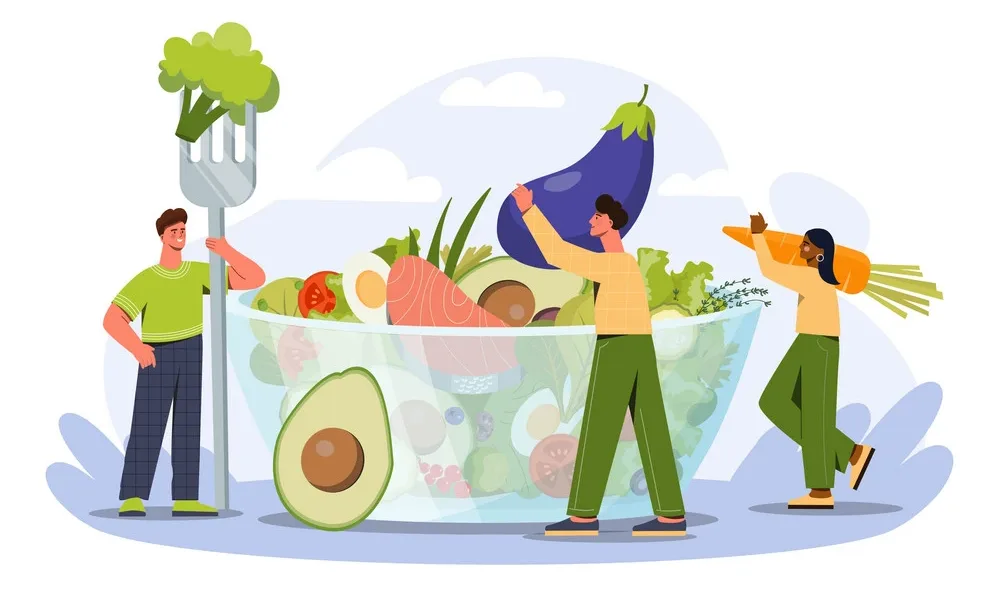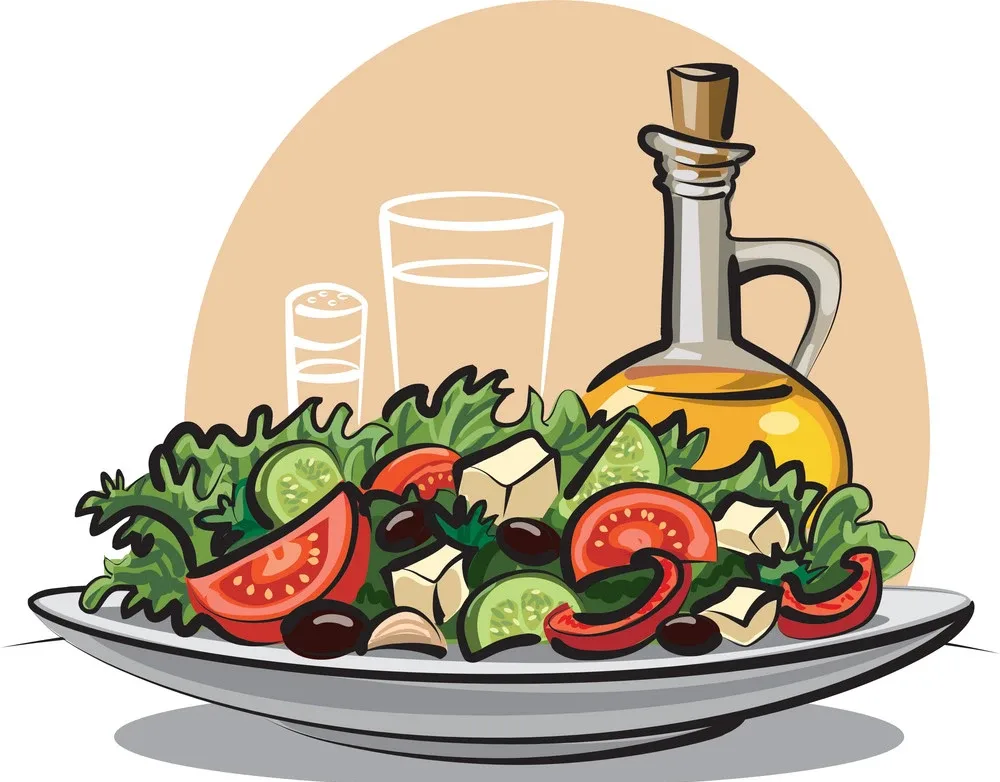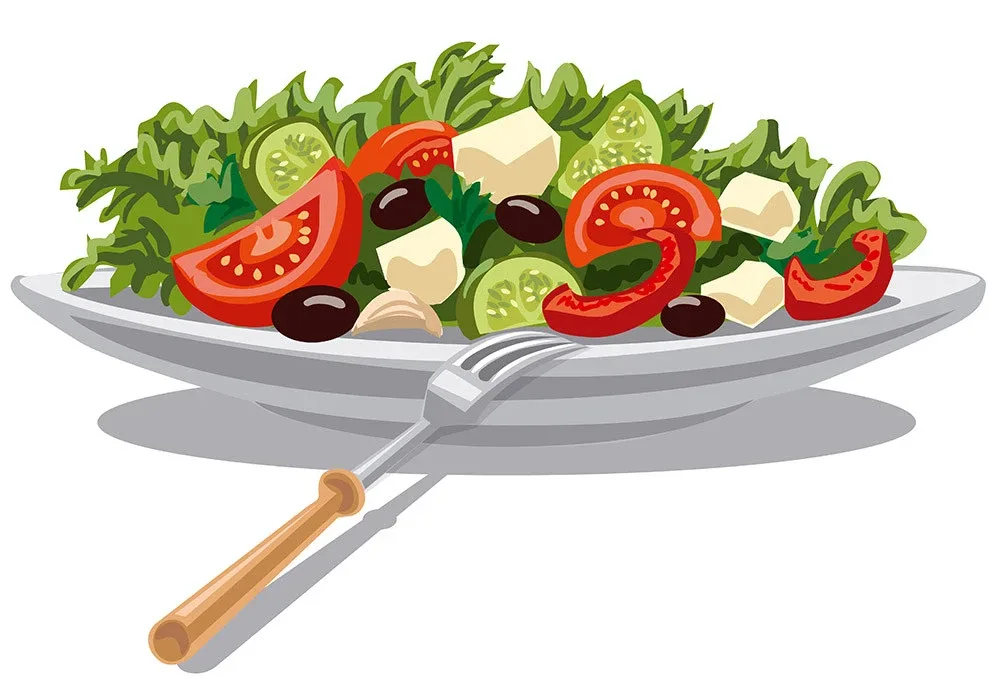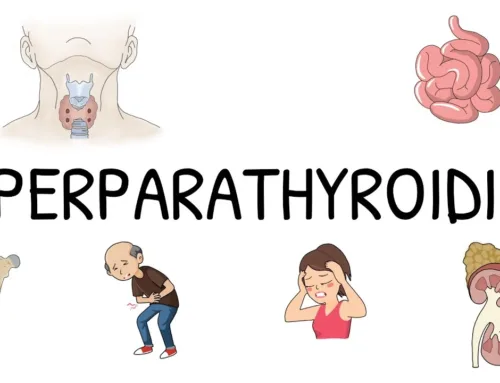
Feeling nauseous after eating salad is common, particularly if you’re new to eating a healthy diet. If you’re already accustomed to eating salads, try adding other foods that may help curb nausea, such as protein and some fat. Over time, slowly introducing more leafy greens into your diet is the best way to avoid this.
With all the different tastes, temperatures, and textures in a salad, you could be experiencing multiple food intolerances.

When you eat a salad, you may have no idea that any of its ingredients could cause nausea. But with so many different tastes and temperatures on your plate, even if one ingredient does not agree with you, another may be enough to start a reaction.
If you’re worried about food intolerances or allergies, talk to your doctor before trying out new foods and get tested for specific intolerances by a qualified doctor or nutritionist.
Even if you think you are eating healthily and avoiding trigger foods, it is also possible that your lifestyle and diet may need to be changed to avoid nausea.

Even if you are eating healthily and avoiding trigger foods, your lifestyle and diet may need to be changed to avoid nausea. For example, some people find that eating a lot of salt or spicy food makes them feel unwell, while others notice that they get symptoms when they eat too much dairy or gluten-containing products like pasta.
You should see your dietician if you experience nausea after eating salads or other meals. The doctor will ask questions about the foods that cause your symptoms and whether there are any triggers in your lifestyle, such as stress or exercise schedule.
Salads are high in insoluble fiber from lettuce and other fresh vegetables.

Another possible explanation for salad-induced nausea is insoluble fiber. The soluble fiber in beans, fruits, and oats helps lower cholesterol but can cause gas and bloating. Insoluble fiber is found in vegetables and whole grains and can cause gastrointestinal distress, including nausea.
Eating too much of any food can cause nausea after eating.
Avoid overeating by eating slowly and in small portions. You may not realize how much you’re eating until it’s too late, which brings us to our next tip:
Eating too quickly when you’re distracted or in a hurry is easy—and sometimes even when you’re not! But eating slower is one of the best ways to control your appetite and the amount of food that goes into your body.
If you need more than this, try reducing the amount of food that goes into your body by eating less often or smaller at each sitting.
The salad is likely the wrong temperature for your body.

Cold foods can be a common irritant for people who suffer from nausea. While there are no clear studies on this topic, many patients report that eating cold foods makes them feel ill. In particular, salads are often served at room temperature or cooler.
Pairing your greens with a warm dressing (or even hot sauce) could cause problems for those with nausea—especially when mixed in one dish! You may enjoy salads, but if you’re nauseous after eating them, it could mean that your body needs to get along with the cold vegetables and dressing.
You can be intolerant to ingredients such as raw onion, tomatoes, or gluten, found in croutons or salad dressing.

If something in the salad you have eaten that you know is an ingredient that causes intolerance, it may explain your experience.
The following ingredients can cause intolerance:
- Raw onion
- Tomatoes
- Gluten (found in croutons and salad dressing)
Other things to consider are:
- When eating raw vegetables like lettuce or cucumber, nausea can be due to lactose intolerance or fructose malabsorption (not enough sugar-transporting protein GLUT2).
- If you have been eating a lot of raw vegetables and are experiencing nausea, it is important to check with your doctor for further testing. If you suspect that there may be something wrong with the food you are eating, then consider taking notes before you eat and after you eat. Record how much of the food was eaten and how long before symptoms appeared.
- If you can pinpoint a specific food that causes symptoms, keep a diary of what you ate before the onset of nausea. If it is something you eat regularly (like salad dressing), then consider eliminating it from your diet for one week and see if your symptoms improve.
Your allergies could flare up when you eat certain foods in a salad, which may cause bloating, burping, and diarrhea.

You may be reacting to several ingredients in your salad, including:
- Most salad dressings contain two major ingredients: fat and oil. Oil is usually extracted from soybeans and can be contaminated with gluten during processing. It may be mixed with other non-gluten ingredients, such as vinegar or lemon juice containing gluten. You might have an allergic reaction when eating these salads if you’re allergic to wheat.
- Salad greens are often grown next door to wheat fields or even on the same land (which means they would have picked up some cross-contamination along the way). This can cause problems for people who are sensitive or allergic to wheat products like pieces of bread, kinds of pasta, and desserts—but those who are sensitive can also react when eating vegetables like lettuce due to transgenic elements present in them from GMO crops growing nearby fields which were sprayed with herbicides containing GMOs too!
- Dairy products found in salad dressings like yogurt will cause bloating for some people because dairy triggers inflammation inside their bodies, making it harder for them to digest food properly without getting side effects like nausea after meals due to inflammation affecting their digestion system negatively instead positively!
This is why you should avoid eating salads if you’re suffering from bloating. If you still want to eat a salad, don’t order any dressing on top of it—ask for olive oil and vinegar instead.
Conclusion
If you have been experiencing nausea after eating salads, it is important to see a doctor. They will be able to help identify the cause and devise a solution for this problem. You could be intolerant to some of the ingredients used in salads and need to cut them out or find ones that don’t cause negative side effects.




Leave A Comment